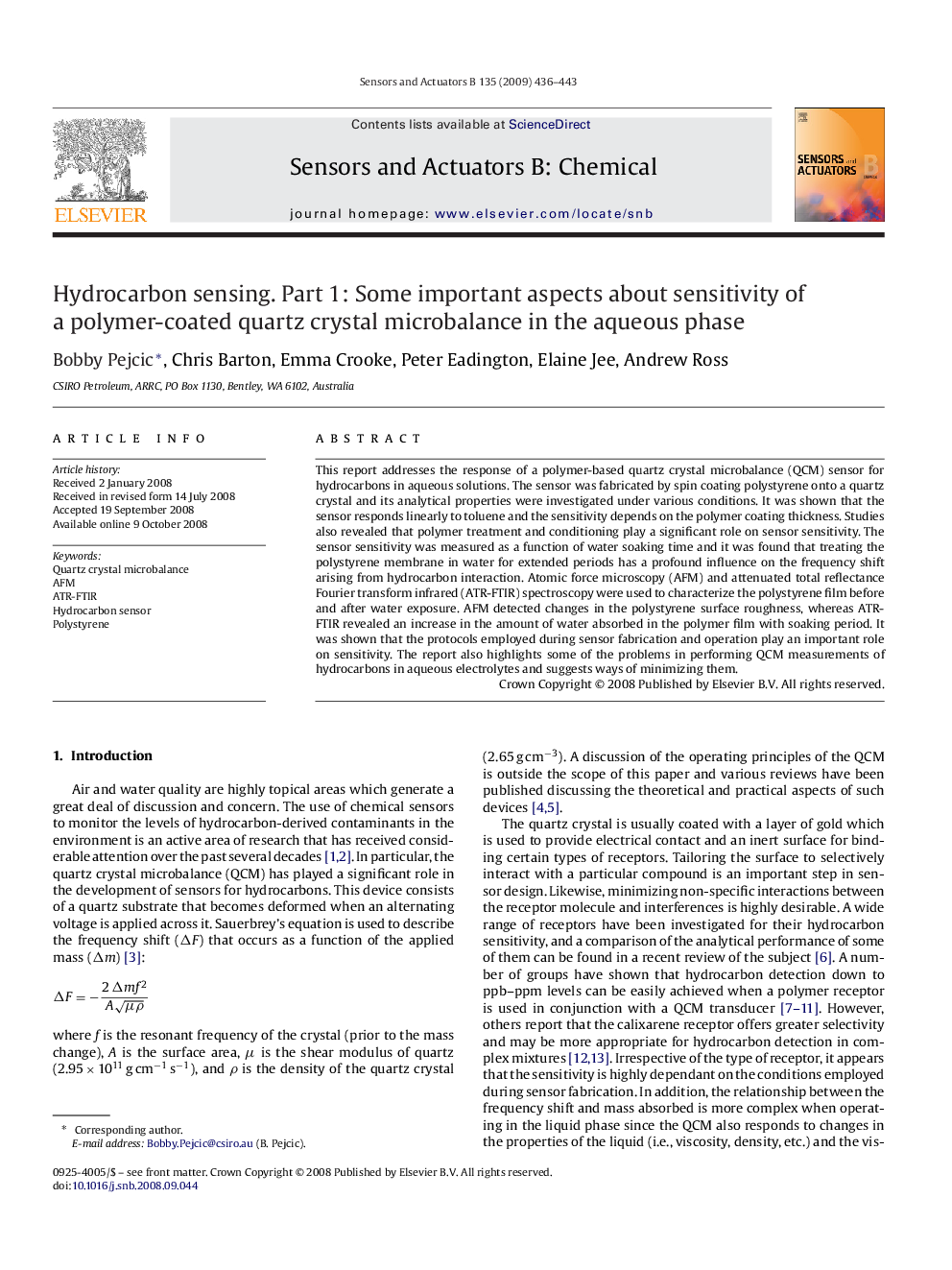| Article ID | Journal | Published Year | Pages | File Type |
|---|---|---|---|---|
| 745695 | Sensors and Actuators B: Chemical | 2009 | 8 Pages |
This report addresses the response of a polymer-based quartz crystal microbalance (QCM) sensor for hydrocarbons in aqueous solutions. The sensor was fabricated by spin coating polystyrene onto a quartz crystal and its analytical properties were investigated under various conditions. It was shown that the sensor responds linearly to toluene and the sensitivity depends on the polymer coating thickness. Studies also revealed that polymer treatment and conditioning play a significant role on sensor sensitivity. The sensor sensitivity was measured as a function of water soaking time and it was found that treating the polystyrene membrane in water for extended periods has a profound influence on the frequency shift arising from hydrocarbon interaction. Atomic force microscopy (AFM) and attenuated total reflectance Fourier transform infrared (ATR-FTIR) spectroscopy were used to characterize the polystyrene film before and after water exposure. AFM detected changes in the polystyrene surface roughness, whereas ATR-FTIR revealed an increase in the amount of water absorbed in the polymer film with soaking period. It was shown that the protocols employed during sensor fabrication and operation play an important role on sensitivity. The report also highlights some of the problems in performing QCM measurements of hydrocarbons in aqueous electrolytes and suggests ways of minimizing them.
